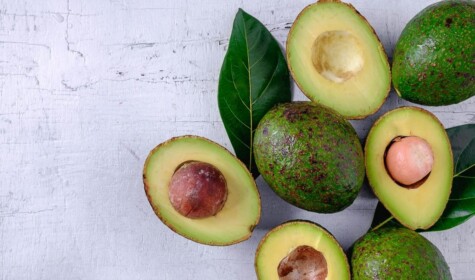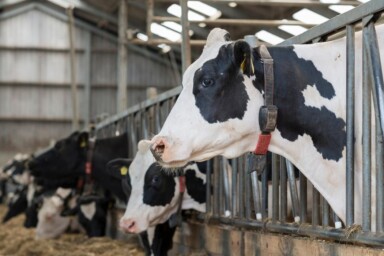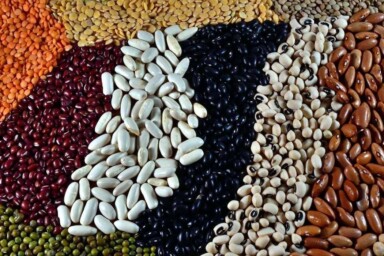The omnipresence of avocados on brunch menus around the world did not happen until recently. For centuries, the fruit was core to cuisines across Central and South America but did not feature heavily in the kitchens of Europe or the United States. However, since the 1990s, demand for avocados (in salads, smoothies, dips, and yes, on toast) has exploded in Europe and North America. But the booming demand is causing environmental and social impacts. The vast majority of the avocados that we eat are from Mexico. Mexican avocado exports total $2.8 billion annually. Following the creation of NAFTA between Mexico, Canada and the US, Mexican avocado production accelerated, especially in the Michoacán region that produces 80% of Mexico’s avocados. Avocado production is a lucrative industry and has brought wealth to Michoacán. In 2018, the production value per hectare of avocado trees was $7,000, almost four times as much as a decade ago. Wages in the avocado plantations of Michoacán are also considerably higher than for other low‐skilled jobs in the region where an avocado plantation worker can earn $60 per day, well more than the $5 minimum wage in Mexico, making the work very attractive.
However, this increase in production has led to considerable issues for local communities in the region and the wider planet. Almost all the avocados produced in Michoacán are for export. Consequently, subsistence farmers in the region have been pushed on to more marginal land (most of which was previously forested) to expand avocado plantations. Avocado production drove 30-40% of recent deforestation in Michoacán. This threatens the endangered monarch butterflies since avocado plantations have also begun edging into their habitat areas, including the protected Monarch Butterfly Biosphere Reserve.
However, none of this environmental damage has slowed the production or made it any less desirable an industry. Observing the dominance of Michoacán in the production of avocados and the associated wealth it brought, other communities have decided to get in on the act – overlooking the significant negatives associated with the fruit’s cultivation.
Immediately next door to Michoacán, Jalisco is determined to increase its avocado production (currently 9% of the national total production for the fruit) to compete with Michoacán’s near monopoly. However, the associated deforestation has resulted in the Salsipuedes River overflowing three times in one year, killing five people. The downstream impact of deforestation is compounded by the fact that avocados are very thirsty crops. Globally, around 6.96 km3 of water is used (or the equivalent of around 2.82 million Olympic size swimming pools) for avocado production in 2018. Jalisco already experiences extremely high water stress, where 80% or more of the available supply is withdrawn every year. Avocado plantations could bring further water stress in surrounding Jalisco communities.
Beyond the Mexican border, Colombia is increasing its avocado production too. It seems a logical choice since the climate is similar to Mexico and there is also a cultural link to the fruit, which forms a key component of Colombian cuisine. However, simultaneous to the expansion of avocado plantations across the country, has been a decline in pollinators. While in Mexico, the impact to pollinators has been driven by infringement into forests, in Colombia the impact is driven by the high use of agrichemicals.
Farmers around the Colombian avocado plantations have seen colony after colony of bees collapse, which has impacted their livelihoods. Without bees and other invertebrates, pollination must be done by hand, which is time-consuming, costly and ineffective. Many suspect that the decline is linked to the expansion of avocado cultivation. This is because Colombian avocado plantations tend to be monocultures and are consequently highly dependent on agrichemicals to function. One of these agrichemicals is the pesticide fipronil, which is a neonicotinoid. Unlike in the EU where it is banned, Colombia allows the use of fipronil. The reason why fipronil was banned in the EU is due to its impact on invertebrates, specifically bees, so it is therefore reasonable to wonder if the use of fipronil could be responsible for the decline in Colombian bees.
That said, despite the associated pesticide use, avocados graced the top of the Environmental Working Group (EWG) list of Clean Fifteen™ for 2021. Each year, EWG ranks pesticide contamination on 46 popular fruits and vegetables based on an analysis of more than 46,000 samples taken by the USDA and the FDA. Fewer than 2% of avocado samples showed any detectable pesticide residue, including fipronil.
The reality is wherever in the world they are produced, avocados in an export-based plantation system are going to cause environmental and social damage. The monoculture system is dependent on high inputs (such as pesticides and fertiliser) that degrade the local ecosystems and redirects freshwater in water-stressed regions. And while it might create jobs, land grabs by large-scale producers impact local food sovereignty by pushing subsistence farmers onto marginal land.
However, with demand so consistently high in the Global North and the industry so lucrative, it is easy to understand the appeal. Until consumers in the Global North better understand the supply chain and the consequences of their purchases, the avocado industry seems unlikely to change. By encouraging consumers to choose, organic and fairtrade avocados, the industry can be pushed towards better practices.







